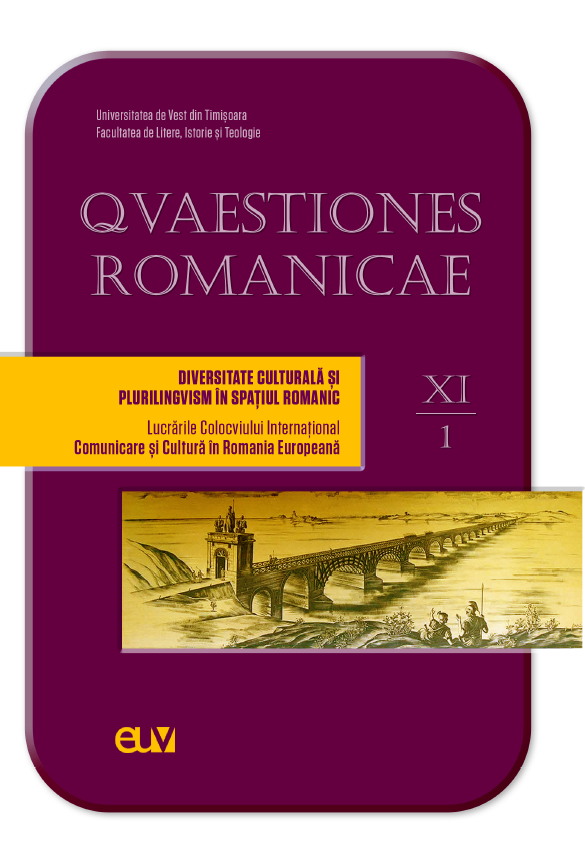Relaţiile româno-franceze în a doua jumătate a anului 1931, reflectate în paginile cotidianului bănăţean Vestul
Abstract: (Romanian-French relations in the second half of 1931, reflected in the pages of the Banat daily The West) The main objective of Romania's foreign policy, throughout the interwar period, was to maintain the borders drawn at the end of the First World War, shared by all political formations, with the exception of the Communist Party, affiliated to the Third International. The transformation of the League of Nations into a reliable defender of peace and stability, as well as the promotion of regional alliances (the Little Understanding and the Balkan Entente) will aim to discourage revisionism in Eastern Europe. Our country's participation in the Disarmament Conference proved the interest of Romanian diplomacy in this ,,burning” problem, in the conditions in which the defeated states claimed to obtain the right to arm themselves within the same limits as the victorious Great Powers in the First World War. In the pages of the <West> newspaper, the main aspects of Romanian-French relations between April 1931 and May 1932 were presented and analyzed, with great competence and objectivity, insisting on the economic projects advanced by France to save the states with an agricultural profile in the central area and Eastern European. At the same time, some asperities in the relations between the two countries were highlighted, determined by the tendency of some governmental circles, coordinated by Constantin Argetoianu, to establish privileged economic relations with Germany. Political, cultural, technical-scientific or other relations were not omitted either, which continued to be maintained at a very high level.
Keywords: foreign policy, Romania, France, Germany, “the West”.
Rezumat: Obiectivul principal al politicii externe a României, pe tot parcursul perioadei interbelice, a fost menţinerea frontierelor trasate la sfârşitul Primului Război Mondial, împărtăşit de toate formaţiunile politice, cu excepţia Partidului Comunist, afiliat Internaţionalei a III-a. Transformarea Ligii Naţiunilor într-un apărător de nădejde al păcii şi stabilităţii, precum şi promovarea unor alianţe regionale (Mica Înţelegere şi Antanta Balcanică) vor avea, ca scop, descurajarea revizionismului în estul Europei. Participarea ţării noastre la Conferinţa Dezarmării dovedea interesul diplomaţiei româneşti pentru această problemă ,,arzătoare”, în condiţiile în care statele învinse pretindeau să obţină dreptul de a se înarma în aceleaşi limite cu Marile Puteri învingătoare în Primul Război Mondial. În paginile ziarului Vestul au fost prezentate şi analizate, cu multă competenţă şi obiectivitate, principalele aspecte ale relaţiilor româno-franceze în intervalul aprilie 1931-mai 1932, insistându-se asupra proiectelor economice avansate de Franţa pentru salvarea statelor cu profil agricol din zona central şi est-europeană. În acelaşi timp, au fost evidenţiate şi unele asperităţi apărute în raporturile dintre cele două ţări, determinate de tendinţa unor cercuri guvernamentale, coordonate de către Constantin Argetoianu, de stabilire a unor relaţii economice privilegiate cu Germania. Nu au fost omise nici relaţiile politice, culturale, tehnico-ştiinţifice sau de altă natură, care se menţineau, în continuare, la un nivel foarte ridicat.
Cuvinte-cheie: politică externă, România, Franţa, Germania, „Vestul”.
